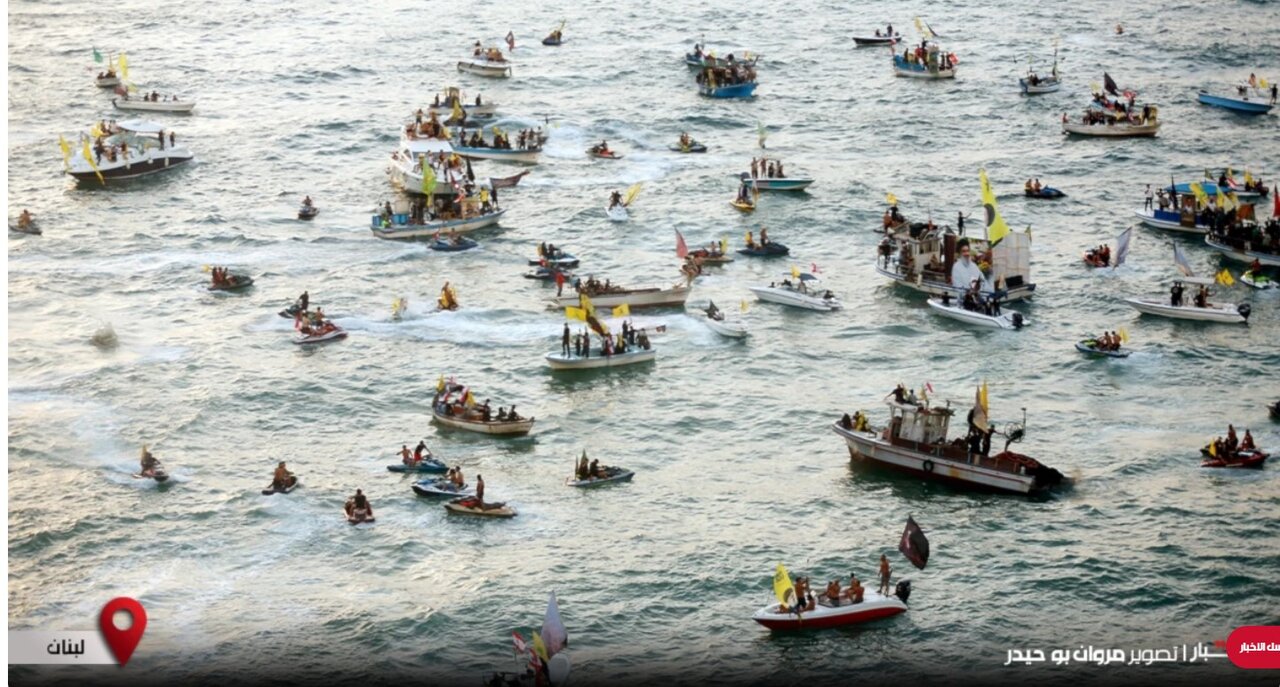Resalat suspension: Turning law into a tool to counter cultural resistance
The proposed suspension of Resalat is the result of narrow political calculations

BEIRUT—In a move described as an attempt to save Prime Minister Nawaf Salam’s image and avoid a new political crisis, the Lebanese government has decided to “suspend” the license granted to the Lebanese Association for the Arts (Resalat).
Meanwhile, the suspension will remain in effect pending the results of the administrative and criminal investigations initiated by the Public Prosecution Office.
The decision, announced after a cabinet session chaired by President Joseph Aoun, came after the association illuminated the Raouche Rock with the images of Hezbollah’s two martyred secretaries-general, Sayyed Hassan Nasrallah and Sayyed Hashem Safieddine.
Political and human rights circles considered this move a clear political attack, not based on any explicit legal text.
Minister of Information Paul Morcos claimed that the decision came after extensive discussion based on Legislation and Consultation Commission (1980) that allows revoking an association’s license if it is proven to have been misused in a manner that harms the public interest.
However, Lebanese law does not specifically include the suspension of an association. Dissolution or full annulment may occur only by a final judicial ruling, after an investigation that ensures the association’s right to defend itself.
This makes the government’s action more like a malicious political interpretation than a fair legal decision.
For its part, the Ministry of Interior presented a report containing fabricated accusations against Resalat. The minister claimed the association it has violated bylaws and used public property for purposes that undermine “public order.”
In a statement, Resalat affirmed that it was not seeking to provoke or challenge anyone, and that it had not transformed the Raouche event into a political event, adding that it would pursue the legal process until the end.
The association emphasized that everything happening only increases its determination to pursue its artistic and cultural mission, stating, “Whoever carries a sacred cause like ours will never tire.”
MP Ali Fayyad, a member of Hezbollah’s resistance bloc in the parliament, described what is happening as “a dangerous violation of the constitutional rules.”
Fayyad accused some in power of “deliberately injecting elements of tension and provocation into the domestic arena,” with the aim of inciting division.
Fayyad noted that some officials “behave as if they are more royal than the king in their dependence on foreign powers, and are using the law as a tool to settle scores and appease Western capitals.”
He said this approach, if continued, would transform a large segment of the Lebanese population into “an outcast sect with no rights or future,” warning of serious social and political repercussions.
The session was preceded by intensive meetings between Aoun and Salam, which resulted in this settlement.
Ministerial sources revealed that the decision, in its milder form—suspending the work of the association rather than permanently revoking its license—came after direct intervention from President Aoun, who warned Salam against proceeding with malicious measures that could spark a major political crisis, especially after Hezbollah’s firm warnings against infringing on the rights of its associations.
The government session also included a presentation by Army Commander Rodolphe Heikal on the plan to confiscate weapons in the south, confirming that it is the Israeli occupation army that is obstructing the Lebanese army’s mission, not Hezbollah, as some falsely claim.
In parallel, the government did not comment on the massacre committed by the Israeli enemy, which targeted a civilian car in Nabatieh with two guided missiles, killing a citizen and his wife.Martyr Hassan Atwi was an engineer who lost his eyesight in the Pager Massacre. His wife, Zeinab Raslan, left her teaching job to care for him and their three children.
Obviously, the proposed suspension of Resalat is the result of narrow political calculations. While the government leaves Israeli attacks unanswered and distances itself from confronting the economic crises and corruption, it chooses to restrict an artistic association simply because it is affiliated with Hezbollah!
Leave a Comment